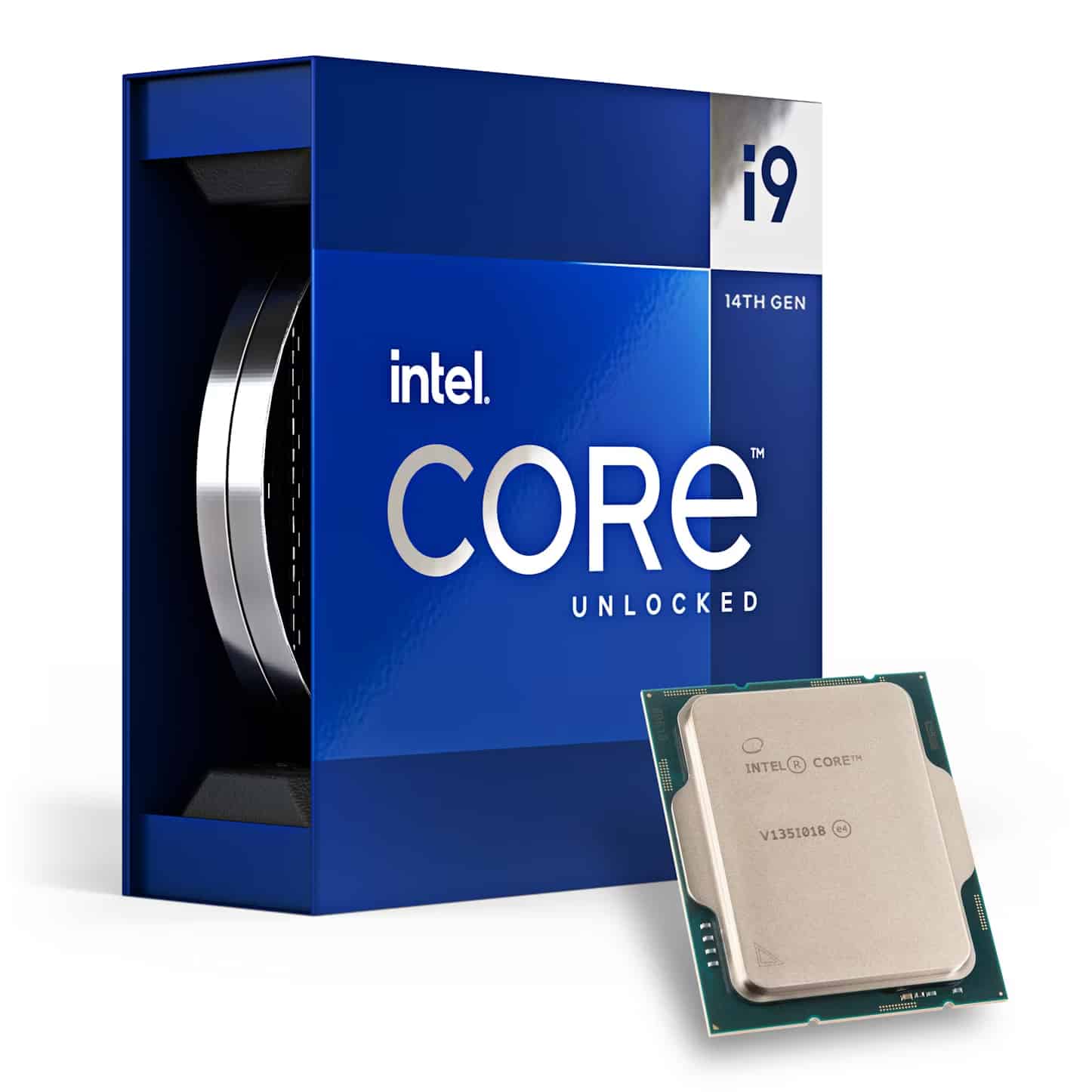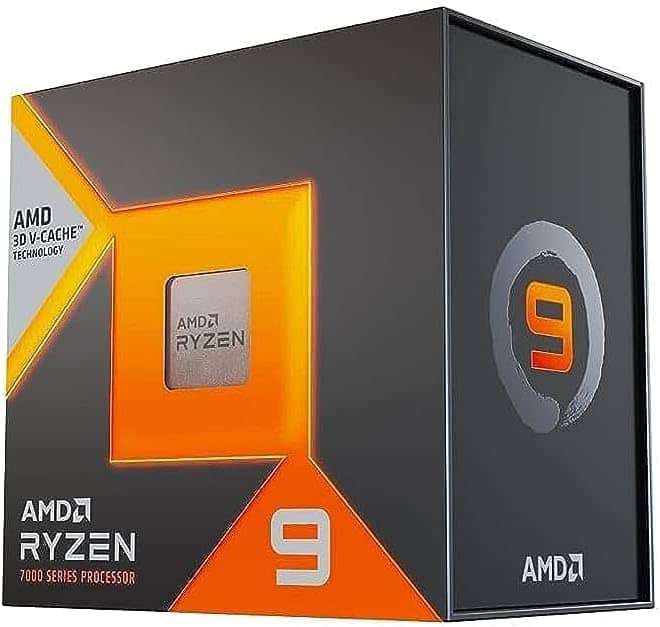Core i9-14900KS vs Ryzen 7 7800X3D – which is for you?

Table of Contents
The expected release of the Core i9-14900KS re-opens a question that's implicit in this comparison: more cache or more clock speed? The main difference between the Core i9-14900KS vs the Ryzen 7 7800X3D is that the Ladder has a wider 96 MB cache memory, while the Intel CPU would have only 36 MB. This marks an advantage for Team Red in scenarios like gaming where fast memory access is necessary. We’re pitting the i9-14900KS vs Ryzen 7 7800X3D.
But would that extra cache be enough for eh al mighty 7800X3d to beat the expected i9-14900KS? or Despite that extra memory, the brute power of Intel beats any other competitor in the scene? Find out if either can be considered among the best CPU for gaming options.
Core i9-14900KS vs Ryzen 7 7800X3D: Specs and Performance
The Core i9-14900KS would boast a higher turbo boost clock speed, reaching an impressive 6.2 GHz, compared to the 7800X3D’s 5.0 GHz. This 1.2 GHz difference underscores Intel’s commitment to raw speed, potentially offering a significant edge in tasks that benefit from higher clock speeds.
However, this speed advantage is contrasted by the Ryzen 7 7800X3D‘s substantial L3 cache of 96 MB, dwarfing the 14900KS’s 36 MB. This larger cache plays a crucial role in gaming performance, where rapid memory access can dramatically influence frame rates and overall smoothness. AMD’s 7000 series architecture, with its emphasis on efficient multi-threaded performance, further enhances the 7800X3D’s capabilities in gaming scenarios, making it a formidable contender in this arena.
| CPU specs | Core i9-14900KS | Ryzen 9 7950X3D |
|---|---|---|
| P / E Cores | 8 / 16 | 8 |
| Total Threads | 32 | 16 |
| Base Frequency (P) | 3.2 GHz | 4.2 GHz |
| Turbo Boost Frequency (P) | 6.2 GHz | 5.0 GHz |
| L3 Cache | 36 MB | 96 MB |
| TDP | 150 W | 120 W |
| Memory types | DDR5-6000DDR4-3200 | DDR5-5200 |
| MSRP | $700 (?) | $449 |
Despite AMD’s advancements, Intel remains a powerhouse in a variety of other demanding tasks. The brute force of its higher clock speed ensures that it would excel in areas like high-resolution video editing, complex 3D rendering, and other CPU-intensive applications.
In these scenarios, the sheer computational strength of the 14900KS often outweighs the benefits of AMD’s larger cache, reaffirming Intel’s dominance in raw processing power. This dynamic showcases the nuanced trade-offs between these two leading CPUs, with each excelling in different aspects of performance.
The Ryzen 7 7800X3D has earned its reputation as the current best gaming CPU on the market, a title it holds largely due to its remarkable efficiency. This efficiency isn’t just about power draw, but also about how it leverages its architecture to deliver top-notch gaming experiences.
In head-to-head comparisons, especially against the Intel Core i9-14900K, the 7800X3D consistently showcases superior gaming performance. The AMD CPU’s advantage in gaming isn’t solely due to its larger cache but also its adept balance between cache size and core performance. This balance is crucial, as it allows for more efficient data processing and retrieval, a vital factor in running complex gaming scenarios smoothly.
Moreover, the architectural design of the Ryzen 7 7800X3D, with its emphasis on an enhanced cache system, positions it uniquely within the gaming community. Such design intricacies highlight the nuanced differences in how AMD and Intel approach CPU performance, with AMD’s 7800X3D tailoring its strengths to maximize gaming enjoyment.
The important thing to remember with these processors is the platform that the motherboards are on and their respective power consumption. If you’re thinking of upgrading from an older chip, you may also need to look at the socket you’re using. These are both high-end CPUs, but one is a refresh and the other is built on an entirely new architecture, Zen 4 up from Zen 3, meaning going from AM4 to AM5.
Core i9-14900KS vs Ryzen 7 7800X3D: Price
The Ryzen 7 7800X3D is priced at $449, presenting a compelling offer for gamers and general users alike. In contrast, the Core i9-14900KS is expected to be priced around $700. This substantial difference in pricing underscores the 7800X3D’s superior value-to-performance ratio, making it an attractive choice for those seeking top-tier gaming performance without the premium cost.
While the 14900KS may offer enhanced capabilities in certain high-demand scenarios, its higher price tag positions it as a specialized option for power users who require the utmost computational performance for specific, intensive tasks.
Core i9-14900KS vs Ryzen 7 7800X3D: Conclusion
The Core i9-14900KS stands out as a powerhouse, potentially offering unmatched overall performance. Its superior raw power translates into excellent multithreaded performance, catering to users with demanding computational needs. However, when it comes to gaming, the Ryzen 7 7800X3D emerges as the unparalleled champion.
Its exceptional value and tailored gaming efficiency make it the recommended choice for gamers. Balancing cost with performance, the 7800X3D delivers where it counts, offering an optimal gaming experience that’s hard to beat, making it the go-to CPU for those dedicated to gaming.
It’s too early to definitively state, however, as there’s still CPU testing to be done and test results yet to see. These components will be put through their paces in industry standard benchmarks such as Cinebench, Geekbench, and Blender, and we’ll soon be looking at their productivity performance, single-core performance, and single thread performance to see which is the fastest gaming CPU. It comes down to CPU speed after all, with Intel potentially taking a lead with its 6.2 GHz boost clock. Time will tell whether the lower TDP of AMD’s chipset will make a difference when we compared Intel vs AMD Ryzen.


